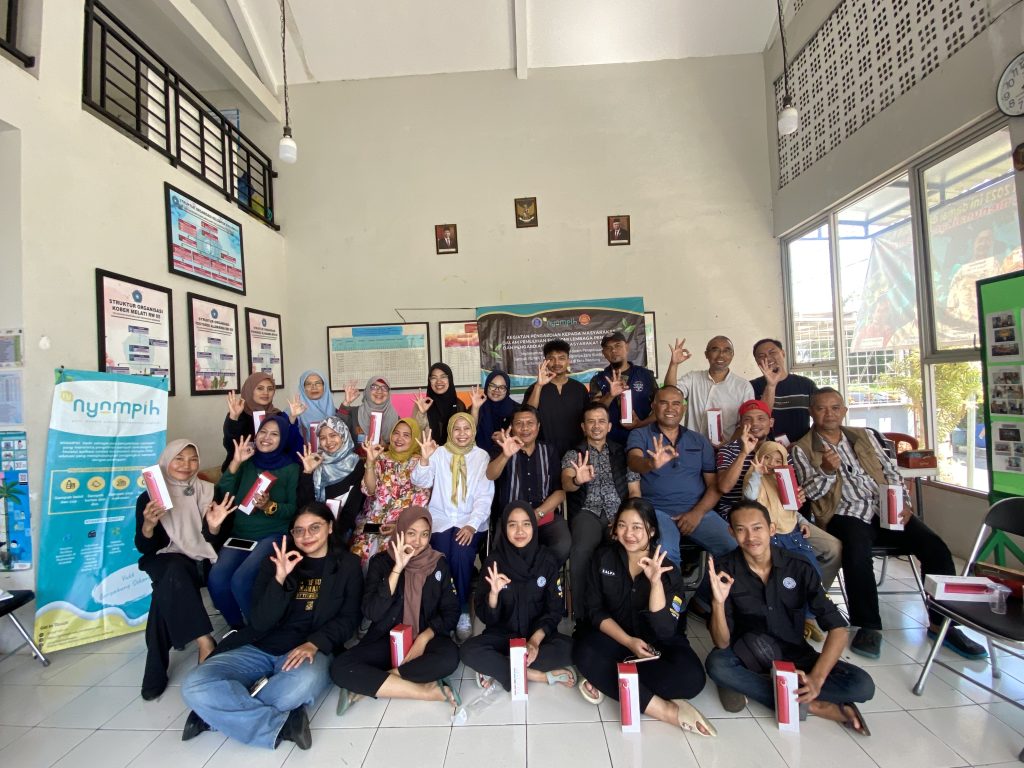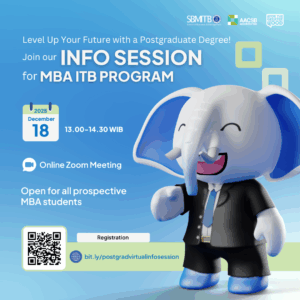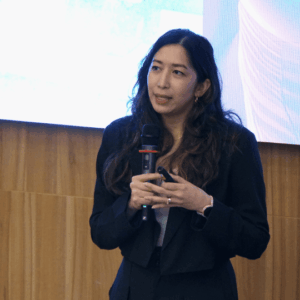A total of 25 residents gathered at the Rancabolang sub-district office, Gedegabe, Bandung, to attend an outreach program conducted by the community service team from SBM ITB. They were supported by the Chairman of RW 05 Adipura I, Dr. H. Kadar Nurjaman, SE., MM, and the Rancabolang sub-district head, Ahmad Nurhasan, S.STP.
This activity was carried out as an effort to increase residents’ awareness in sorting household waste into two types: organic and non-organic waste.
During the outreach session, it was noted that the residents of the Rancabolang sub-district generated nearly 1,700 tons of waste per month. Therefore, the community of Bumi Adipura 1 and the head of Rancabolang sub-district expressed their belief that the Nyampih team has the promising potential in managing the waste in the area.
“The waste in our sub-district is already sorted into two types but many remains managed by accumulation. So, for the separated waste, we can say that about 40% of it has been properly handled. However, the residents’ knowledge regarding the difference between organic and non-organic waste, and proper use of waste bins are lacking,” said the sub-district head during the opening session of the event on Sunday (09/07/23).
The Chair of Community Service for SBM ITB’s economic recovery program, Santi Novani, Ph.D., explained that this activity is the initial phase of introducing the residents to the escalating volume of waste, emphasizing the need for community concern in waste management. Santi hoped the residents could collaborate and synergize in the Nyampih program.
Before introducing the program, the team discussed the increasing volume of waste each month, followed by introducing the Nyampih program that has been implemented in several areas.
“As you know, the waste in Bandung City is increasing every month this year. The accumulating waste comes from fast food restaurants and booming coffee shop waste in Bandung. It’s not only in big cities; waste is often accumulated in empty land, especially in rural areas due to a lack of education regarding waste separation. In this regard, we have provided socialization in several areas, such as Sumedang, Gunung Batu, etc.,” confidently stated Regi.
During the waste-related session, the team introduced the Nyampih program, which offers benefits to residents, such as convenient waste collection facilities that the staff will pick up and waste management that is weighed and exchanged for point rewards. As a result, residents will earn points based on the amount of waste collected, which can be redeemed for vouchers, goods, or cash.
In addition to providing information about waste and introducing the Nyampih program, the community service team engaged in a question-and-answer session with the residents regarding the program’s output and future expectations for Nyampih.
Considering the residents’ enthusiasm, the community service team requires further observation to gather supporting data to proceed with the program accurately, particularly with the support of the neighborhood community, sub-district, and local authorities, which will facilitate SBM ITB’s community service team in managing the data.
“In this session, Ms. Santi and the team will provide socialization regarding waste management, especially household waste generated daily. With the Nyampih program, we hope to increase your awareness regarding the amount of household waste and foster cooperation in the future when this program runs smoothly,” said Karin Winda, a member of the community service team from SBM ITB.







